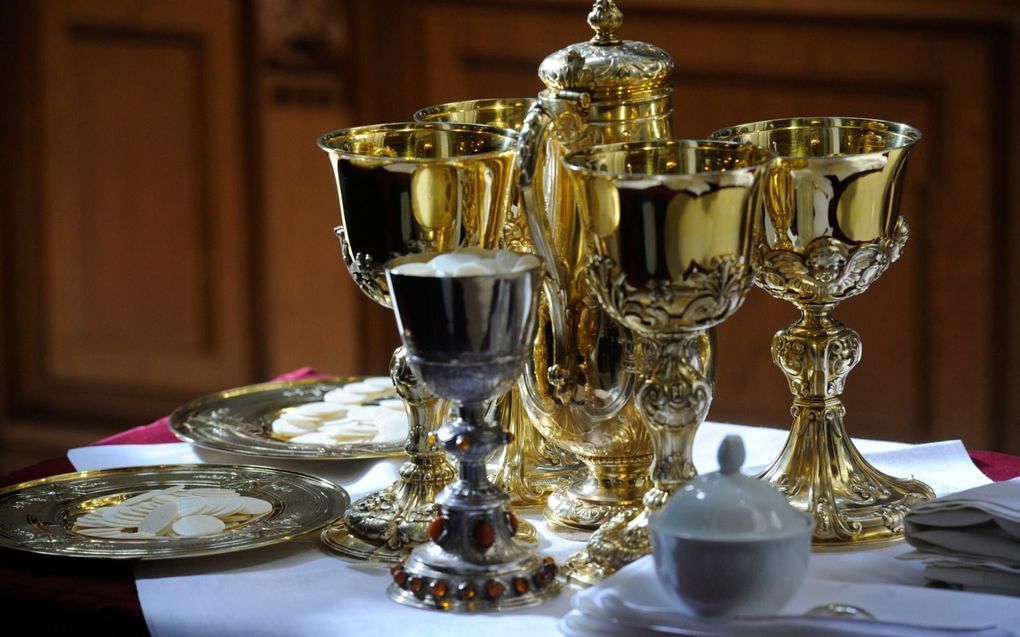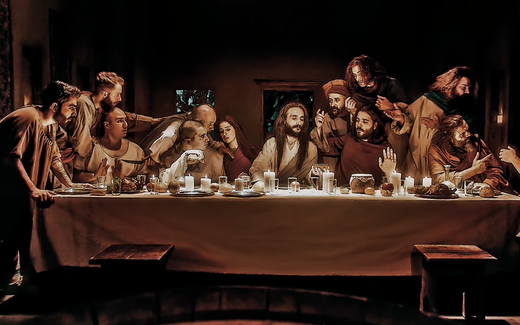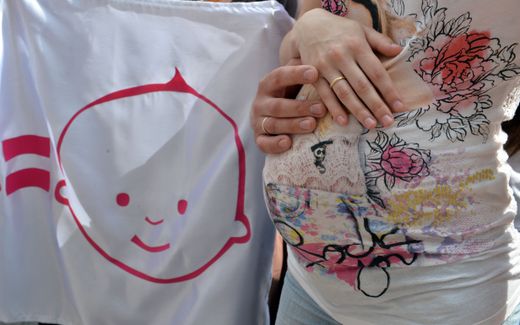European statement of confession turns 50

Lord's Supper set for the celebration of the 40th anniversary of the Concordia of Leuenberg in 2013, at Berlin Cathedral. Photo epd-bild, Andreas Schoelzel
European Union
Lutherans and Reformed people in Europe lived separately for five centuries until March 16th, 1973. Then, some drafted a joint statement of confession: the Leuenberg Concord. The theological document is now 50 years old.
What is the Leuenberg Concord?
Lutherans and Reformed tried to reconcile differing views on, for example, the Lord's Supper as early as the Reformation era. This would only succeed in the last century. After years of discussions, the "Leuenberger Konkordie" was signed in 1973 in Leuenberg, a town near Basel in Switzerland. This was done by delegates from Lutheran, Reformed and United Churches, Waldensians and Bohemian brethren.
The Leuenberg Concord is not an independent confessional document but more of a joint statement on confession. For example, it says of the doctrine of justification: "In the doctrine of justification, the fathers of the Reformation expressed the pure understanding of the Gospel."
Thus, the delegates were not concerned with establishing a doctrine but with a shared understanding of the Gospel as the basis for a church community. The Latin word "Concordia" means "together at heart". Differences between traditions were not denied but were no longer seen as obstacles to the church community.
Besides the possibility of pulpit exchange and participation in each other's sacramental celebrations, the churches undertook to strive for the most significant possible commonality in witness and service to the world.
How did they intend to do this?
Based on the Leuenberg Concord, the Community of Evangelical Churches in Europe (CPCE) was founded. It aims to serve as a platform for dialogue and learning conversations. Thus, the CPCE regularly publishes documents on theological topics, such as the relationship between Law and Gospel or church and Israel. It also speaks to the Roman Catholic Church and Eastern Orthodox churches.
The CPCE represents 95 churches and more than 50 million Christians. These come not only from Europe but also from Argentina and the United States, for example. The latest member is, since September 2022, the Deutsche Evangelisch-Lutherische Kirche in der Ukraine.
This article was summarized by CNE.news and previously published in the Dutch daily Reformatorisch Dagblad, on March 16th, 2023.
Related Articles






